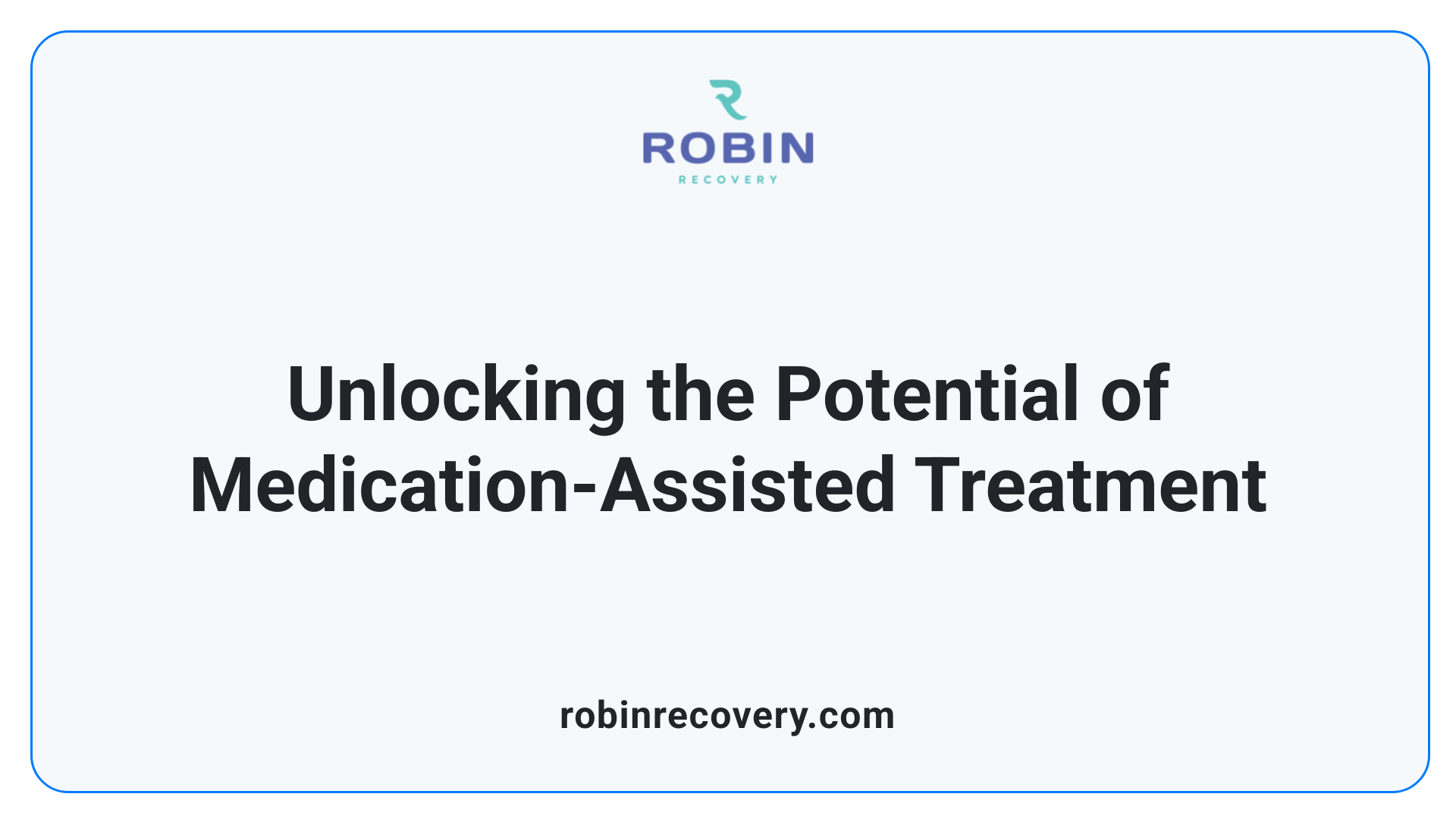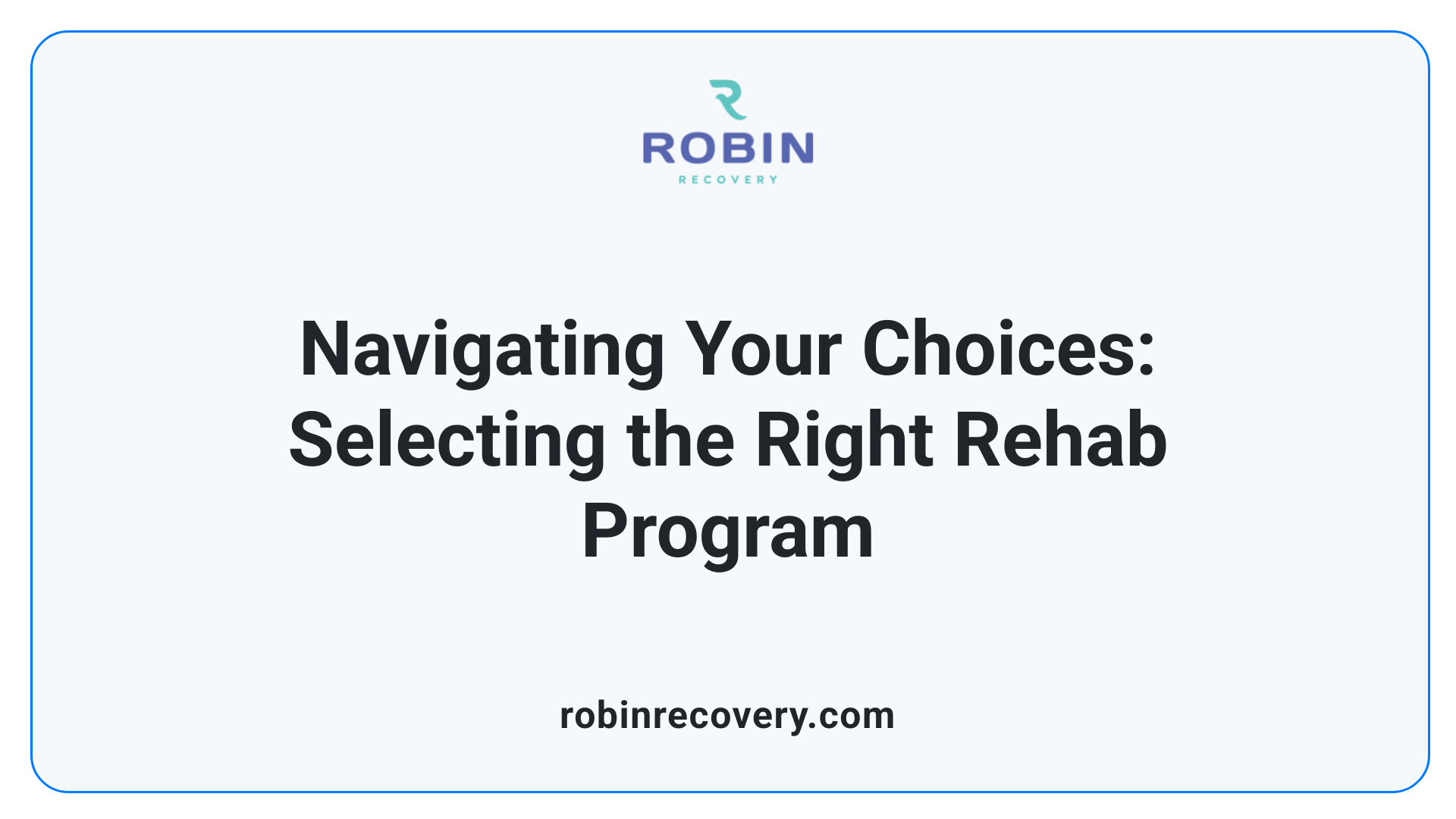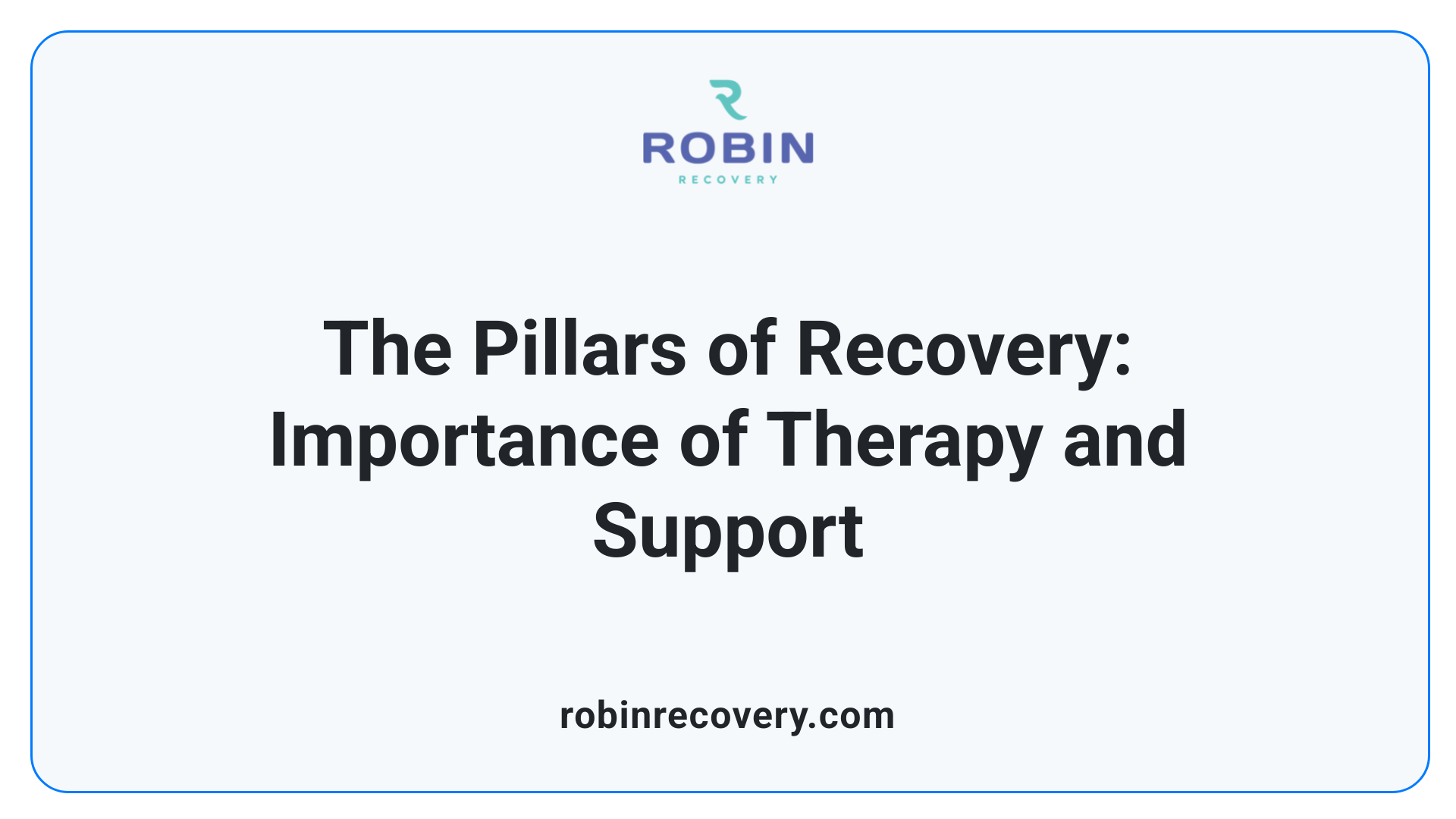Selecting the Best Opiate Addiction Treatment Program for Your Needs

Understanding Opiate Addiction Treatment Options
Choosing an effective opiate addiction treatment program can be a daunting yet vital step towards recovery. With various programs and methods available, understanding the intricacies of each can aid individuals in making informed decisions tailored to their needs. In this guide, we explore the diverse treatment options, factors to consider when selecting a program, and answer common questions that arise during this critical selection process.
Exploring Medication-Assisted Treatment (MAT)

Overview of Medication-Assisted Treatment
Medication-assisted treatment (MAT) is considered the most effective approach for treating opioid use disorder (OUD). This strategy integrates FDA-approved medications, such as methadone, buprenorphine, and naltrexone, with counseling and behavioral therapies. The combination of medical and therapeutic interventions helps address the multifaceted nature of addiction, enhancing overall recovery outcomes.
Effectiveness of Methadone, Buprenorphine, and Naltrexone
Research over the years supports the effectiveness of MAT:
- Methadone: Has a long history of use since 1947, effective in reducing opioid use and improving treatment retention. Patients receiving methadone are 4.44 times more likely to stay in treatment.
- Buprenorphine: Approved in 2002, this medication has shown better retention and fewer opioid-positive drug tests, especially at higher doses (16 mg/day or more).
- Naltrexone: Effective in its injectable form, clinical trials have shown that participants receiving extended-release naltrexone had significantly higher rates of opioid abstinence compared to placebo.
Role of Counseling and Therapy in MAT
Counseling and behavioral therapies play a crucial role alongside medications in MAT. They help individuals develop coping strategies, address underlying issues related to addiction, and reduce the risk of relapse. Evidence-based therapy options such as cognitive-behavioral therapy (CBT) and motivational interviewing help support patients throughout their recovery journey.
Synthesis
The combination of these FDA-approved medications with individual and group therapy contributes to a comprehensive treatment strategy, ultimately reducing opioid use and overdose risks significantly. Recent studies highlight that individuals receiving MAT show increased functioning and decreased health care needs, demonstrating the approach’s broad therapeutic benefits. For more information, individuals in need can contact resources like SAMHSA’s National Helpline.
Key Factors in Choosing a Rehab Program

How do I choose a good rehab program for opioid addiction?
Choosing a good rehab program for opioid addiction involves a thorough evaluation of various factors. First, inquire about the facility’s track record with treating opioid dependence. Ask about their treatment protocols and if they offer a structured approach tailored to individual needs.
Accreditation and state certification of addiction treatment centers
Ensure the rehab center is accredited and certified by recognized state bodies. Accreditation serves as a validation of the facility’s adherence to established standards of care and enhances the likelihood of receiving effective treatment.
Importance of evidence-based treatments
Verify that the program provides evidence-based treatments such as cognitive behavioral therapy or medication-assisted treatment. These approaches have been shown to improve recovery outcomes by addressing both the psychological and physical aspects of addiction.
Financial considerations and insurance coverage
Financial considerations are also essential. Check if the rehab facility accepts your insurance or offers state-funded options for uninsured individuals. Understanding your financial responsibilities upfront can help you avoid unexpected costs, ensuring that you receive the care necessary without significant financial strain.
Understanding the Gold Standard Treatment for OUD

What is the gold standard treatment for opioid use disorder (OUD)?
The gold standard treatment for opioid use disorder (OUD) is opioid agonist therapy (OAT). This approach utilizes medications like methadone and buprenorphine, both of which have shown to be highly effective in reducing the morbidity and mortality associated with OUD. Unfortunately, despite its efficacy, only 35% of veterans diagnosed with OUD are currently receiving medication-assisted treatment through the Veterans Health Administration (VHA). This indicates a significant gap in accessibility and utilization of these critical treatments.
What are the barriers and facilitators to OAT within Veterans Health Administration?
Several barriers exist that hinder the implementation of opioid agonist therapy in the VHA. Some of the main obstacles include:
- Provider beliefs: Some healthcare providers have reservations about using OAT, stemming from misconceptions about addiction treatment.
- Patient interest: There is often a lack of interest among potential patients, which can limit enrollment in OAT programs.
On the other hand, there are key facilitators that can promote the success of OAT:
- Dedicated prescribers: Availability of healthcare professionals committed to providing OAT can greatly improve patient access.
- Staff education: Ongoing training and education for healthcare workers can help shift perceptions and encourage the use of medication-assisted treatment.
- Supportive leadership: Leadership that prioritizes OUD treatment initiatives fosters a more conducive environment for change.
Recent studies endorse that enhancing access to OAT and offering intensive education can boost pharmacotherapy rates in low-performing VHA facilities. As the incidence of OUD continues to rise, improving implementation strategies for OAT is crucial for providing effective and comprehensive care to veterans.
The Role of Therapy and Support Systems in Recovery

Different Types of Therapy: Individual, Group, and Family
Therapy is a cornerstone of effective addiction treatment, addressing the psychological aspects of dependency. Individual therapy provides personalized attention to cope with cravings and underlying issues. Group therapy fosters shared experiences and mutual support among peers, which can be incredibly motivating. Family therapy allows for the inclusion of family members in the recovery process, facilitating communication and healing within the family unit, thereby enhancing the patient's support system.
Importance of Ongoing Support Post-Treatment
Maintaining recovery often requires ongoing support beyond initial treatment. Regular counseling appointments, participation in support groups, and access to recovery coaching are crucial for reducing relapse rates. Patients benefit from continuous engagement with care teams to address challenges that may arise during their recovery journey.
Community Support and Self-Help Groups
Community connections play a critical role in sustaining recovery. Self-help groups, such as Narcotics Anonymous, provide a platform for individuals to seek support from those with similar experiences. These groups emphasize the ongoing nature of addiction and allow members to share successes and challenges, reinforcing a sense of belonging and accountability.
Therapy TypeDescriptionBenefits Individual Therapy One-on-one sessions focusing on personalized care. Tailored interventions. Group Therapy Sessions with peers sharing similar struggles. Mutual support and motivation. Family Therapy Involves family members to improve relationships and support. Strengthens family dynamics.
Understanding the role of therapy and support systems is essential for anyone navigating recovery from addiction.
Navigating Insurance and Resources for Treatment Accessibility

Understanding insurance coverage for addiction treatment
Finding the right treatment for substance use disorders often begins with understanding insurance coverage. Individuals should start by contacting their insurance provider to inquire about preferred treatment centers. Many programs accept Medicare and Medicaid, as well as sliding fee scales accommodating those with financial challenges.
Accessibility of treatment programs for uninsured individuals
For those who are uninsured, accessing care can be daunting. Fortunately, there are state-funded treatment programs designed specifically for this demographic. These programs typically offer comprehensive services and do not require health insurance. By ensuring treatment providers are licensed or accredited at the state level, individuals can be confident in the quality of care they will receive.
Resources like SAMHSA's National Helpline for referrals
SAMHSA’s National Helpline provides a free and confidential service that operates 24/7, connecting individuals with treatment options. By calling 1-800-662-HELP (4357), individuals can receive referrals to local facilities and support groups without the need for insurance. This helpline is available in both English and Spanish, aiming to bridge the gap in access to necessary treatments for all individuals seeking help.
Committing to Recovery with the Right Treatment Choice
Selecting the best opiate addiction treatment program is a pivotal step towards reclaiming one's life from addiction. By understanding the available treatment options, considering personal needs, and utilizing resources effectively, individuals can embark on a successful recovery journey with confidence. Support systems, ongoing therapies, and appropriate medication can complement each other for a comprehensive path to sustained recovery.
References
- National Helpline for Mental Health, Drug, Alcohol Issues - SAMHSA
- Chapter 5—Specialized Substance Abuse Treatment Programs - NCBI
- Centers of Excellence | Department of Human Services
- Information about Medications for Opioid Use Disorder (MOUD) - FDA
- Struggling with Addiction? Tips on Finding Quality Treatment
- Drug addiction (substance use disorder) - Diagnosis and treatment
- How effective are medications to treat opioid use disorder?
- Choosing The Best Opiate Addiction Treatment Program
- Guide: 11 Indicators of Quality Addiction Treatment
- Substance Use Treatment For Veterans - VA.gov
